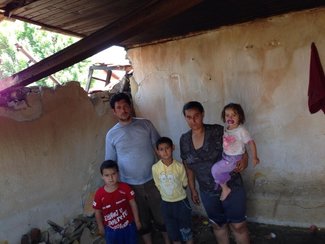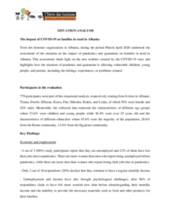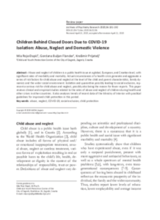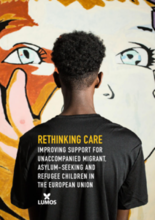

Displaying 111 - 120 of 544
This assessment sheds light on the new realities created by the COVID-19 virus and highlights how the situation of pandemic and quarantine is affecting vulnerable children, young people, and parents, including the feelings, experiences, or problems created.
There has recently been increased interest in the potential for formal and informal networks to aid interventions with biological families in helping them achieve reunification in the context of the child protection system. This article analyzes the conceptualization of social support in order to create social support networks.
"Children who live in out-of-home care are to form an advisory group on setting and monitoring standards in their homes for the first time," says this article from the Times of Malta.
This paper reviews clinical and empirical studies related to the rates of abuse and neglect of children during health and other crises in other countries. It also analyses trends of recent data of the Ministry of Interior [of Croatia] with practical guidelines for improved child protection in this period.
This study aims to advance understanding of social workers’ perceptions of the circumstances necessitating and preventing the placement of children with disabilities (CwDs) in institutions.
This study aims to advance understanding of social workers’ perceptions of the circumstances necessitating and preventing the placement of children with disabilities (CwDs) in institutions.
The present study aimed to evaluate the specific impact of different forms of victimization on alcohol and cannabis use problems among adolescents in Residential Child Care (RCC) in Spain, attending to sex differences.
"Greece plans to relocate about 1,600 vulnerable children to other European countries that volunteer to host them, amid the coronavirus outbreak," says this article from BBC News.
This report maps and assesses the forms of care provided to unaccompanied migrant, asylum-seeking and refugee children in six European Union Member States: Bulgaria, France, Italy, Greece, the Netherlands and Spain.
In this blog post, Anna Riatti - coordinator of the UNICEF Refugee and Migrant Response in Italy - describes how UNICEF is supporting refugee and migrant children in Italy in light of the COVID-19 crisis.




